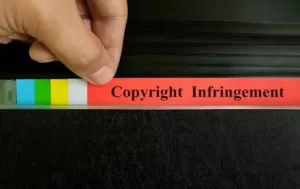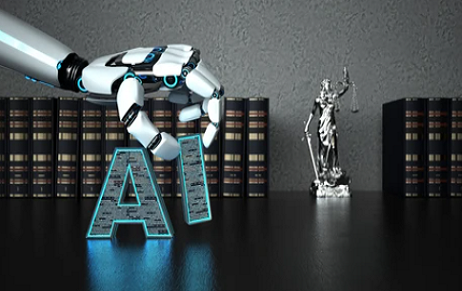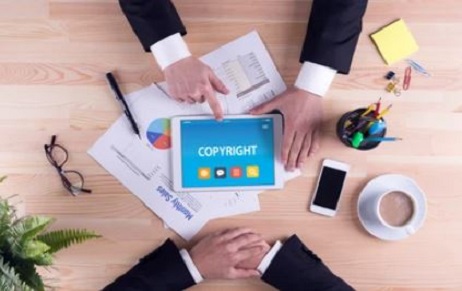Introduction Artificial intelligence (AI) has emerged as one of the biggest game-changers in recent years…
Online Infringement of Copyrights
One of man’s most significant innovations of the Millenium is the internet. It is a term used to describe a vast network of linked computer systems and computer networks. The best aspect of the internet is that it’s available practically everywhere on the planet for very little money. As the globe becomes a global village, the Internet, according to Bill Gates, the well-known American businessman and former CEO at Microsoft, the world’s largest software company, has been its Town Square. The quickest place to find information is online. Everything under the Sun is accessible with a single click. With just one click, a thousand-site journey can be started. The Internet, however, has both benefits and drawbacks. Owners of copyrights frequently view the Internet more as a curse than a blessing. The main reason for this is that the Internet poses a main danger to its exclusive rights.
[Image Sources : Freepic]

The terms “internet” and “digital” are not mentioned in the Copyright, Designs and Patents Act of 1988. The 1957 Indian Copyright Act covers the security of computer software. Unfortunately, it lacks any mechanism for preventing online software piracy. Additionally, neither “digital work” nor “internet” are defined in the 2012 amendment act. The legal concerns are a result of the gaps in the enactments. However, a “digital product” will be a collection of copyrights produced by such an author with an identifiable identity by copyright law. The acts for which copyright was available are listed in Section 4 of the Copyright Act of 1957 .
The creator of every literary, dramatic, artistic, or musical work will therefore be eligible under the Act’s provisions. The owner of a “digital product” that is comprised of a collection of Copyrights shall be subject to all provisions applicable to owners of acts for whom section 14 of the Copyright Act of 1957 is in effect. Therefore, any misuse of such “digital work” or “online work” shall be considered misuse.
Internet Infringement Of Copyrights
Internet copyright infringement has increased in frequency in the modern era. Internet poses the biggest threat to copyright holders because of its qualities, as was previously noted. It is difficult to tell if a work is a “copy” of a protected work or an imitation of the original, which is a distinctive aspect of infringement on the internet. On the other hand, a such distinction can be made with ease in a tangible medium. It’s not always deliberate to infringe. Another reason for it can be “ignorance.”
The cyberspace breach would take place using a variety of avatars, such as:
Framing
Framing is the practice of allowing one website to use portions of another internet site in a frame of its own, giving the framing website the appearance that it is the original website. Each frame in framing operates separately such that data downloaded into one stays within that frame and does not cross over into another frame or appear on the frame itself. As a result, the user continues to use the frame website and is unaware that the content originated on another website.
Linking
A connected site is reached by linking the user from the source site. The original site’s access to a website is made available to the user. It is not necessary to type the Universal Resource Locator (URL) separately. Linking makes it easier for the user to conduct research. Unfortunately, it raises several legal problems. There are several distinct types of linking, including in-line, deep, and surface linking.
Surface linking is when the originating site links to another site’s homepage. When a website deep links, it provides a connection to the “inner pages” of a linked website so that the user can access them without visiting the linked website’s home page. Consequently, there is a clear distinction between the two links.
Caching
A cache is a location for short-term storage. Caches like the disc cache and cache memory are a feature of computers. Therefore, the act of copying content from such a source to a cache is known as caching. The user would have access to this content for a limited time. Caching can be done in three different methods. The first is to replicate the actual content that is displayed on the computer’s screen while visiting the internet. Second, every document that is displayed is copied and kept among the documents that the user has previously reviewed. Thirdly, the papers are not kept on a personal computer, but rather on a website or an ISP (Internet Service Provider).
Posting Or Uploading A Right For Public Display
Almost unlimited viewing is available when a piece of work is published online. Therefore, it is considered an infringement when a copyrighted work is published online without permission. Nevertheless, the courts haven’t yet offered a rigid methodology for reaching this decision and instead have offered a range of opinions depending on the specifics of each case. The defendant in Playboy Enterprises Inc v. Frena established a BBS, or bulletin board service. Infringing materials were on the BBS. The defendant is sued by the plaintiff on grounds of infringement. The accused argued that he was not aware of any wrongdoing. The US District Court, however, found the defendant accountable.
Archiving
In the case of framing and linking, the content from another website was hyperlinked or framed, establishing an internet conduit between the two. In the aforementioned situations, the materials are neither downloaded nor saved. However, the process of archiving requires obtaining, preserving, and merging content from another website. Even if a hyperlink does exist, it must direct users to a different section of the same website where the content of another website has been archived. Archiving without the owner’s consent may be considered an infringement.
Jurisdiction in cases of online copyright infringement
The network of networks is how the internet can be described. The jurisdiction might be simply established in physical space. Unfortunately, the jurisdiction concerning Cyber Space raises some legal problems in cases of online infringement. If cyberspace is violated, many nations may have jurisdiction. Thus, it is difficult to choose whether the jurisdiction should be established based on the place where the item was created, where it is stored, or where it is exhibited. Additionally, if the jurisdiction is established, the choice of legislation poses a barrier because there is a risk that copyright infringement laws may vary between nations or even be incompatible with one another.
Conclusion
Internet is therefore more of a curse than a blessing for the owners of the copyright. There are many different types of cyberspace infringement, and it can be challenging to prove them. The alleged or actual infringement may be done by framing, linking, caching, archiving, or other means. How such activities are treated differs depending on the facts and circumstances surrounding them. The internet is evolving quickly, as are the technologies that support it. For effective adjudication, the law and the courts need to keep up with the rate of such advancements. Despite proof of infringement, the situation of the Copyright holders is not improved because there are still several legal obstacles to a swift resolution. The question of jurisdiction and the chosen law make the cases even murkier.
Author: Rahul Vanjan- a student of Lloyd law college, Greater Noida, in case of any queries please contact/write back to us via email to [email protected] or at IIPRD.



